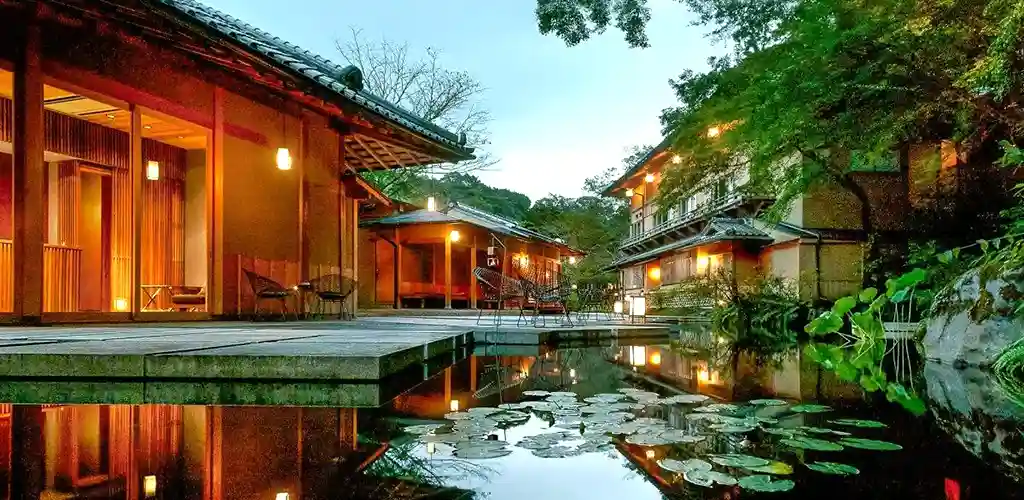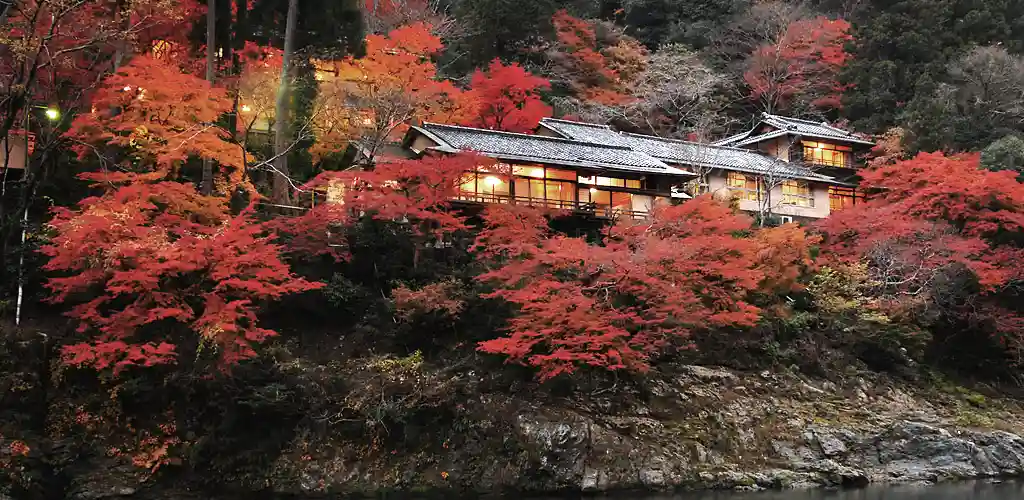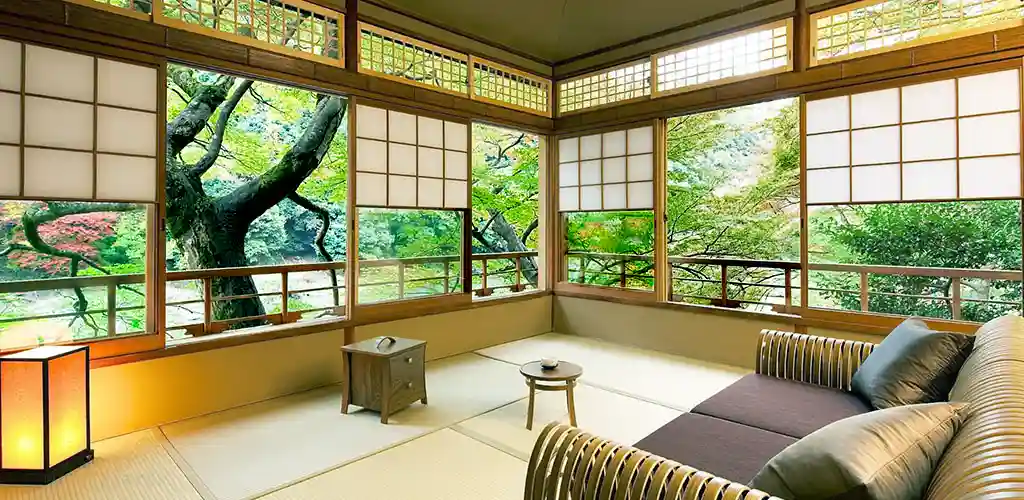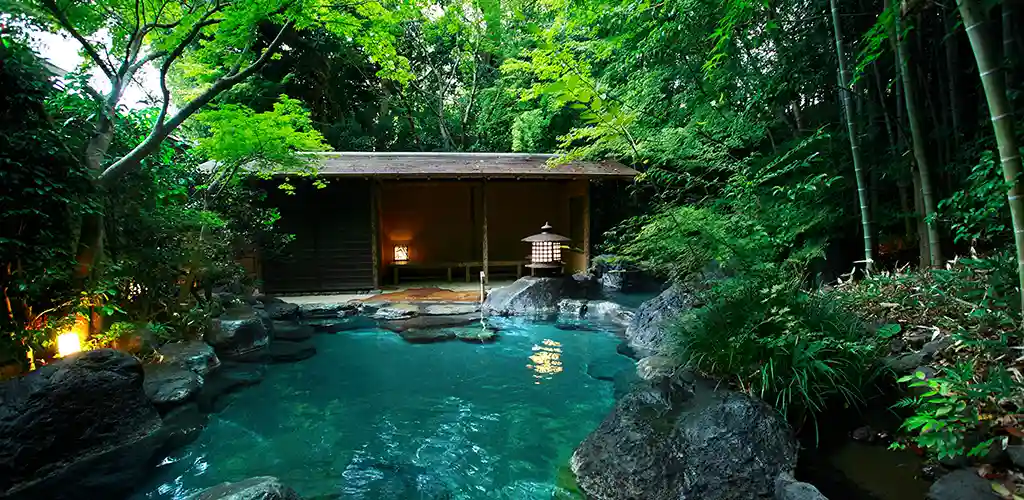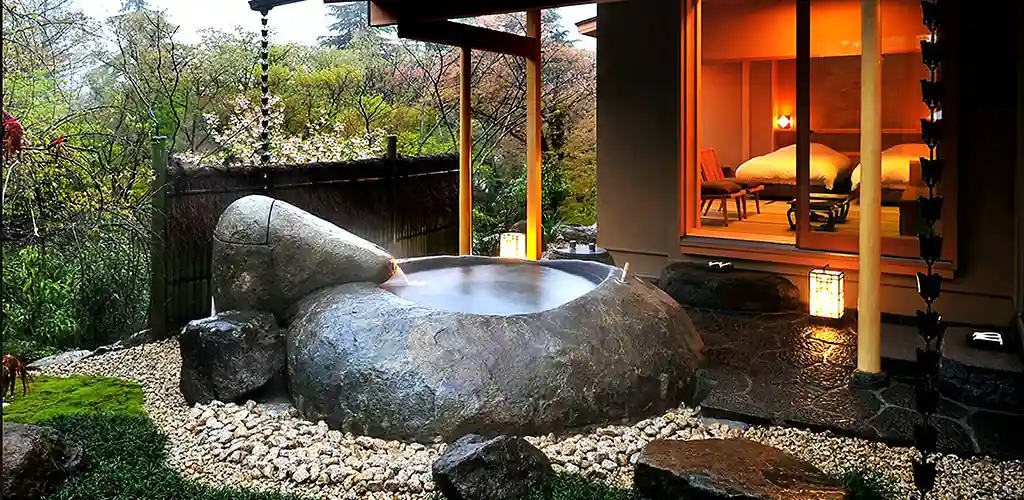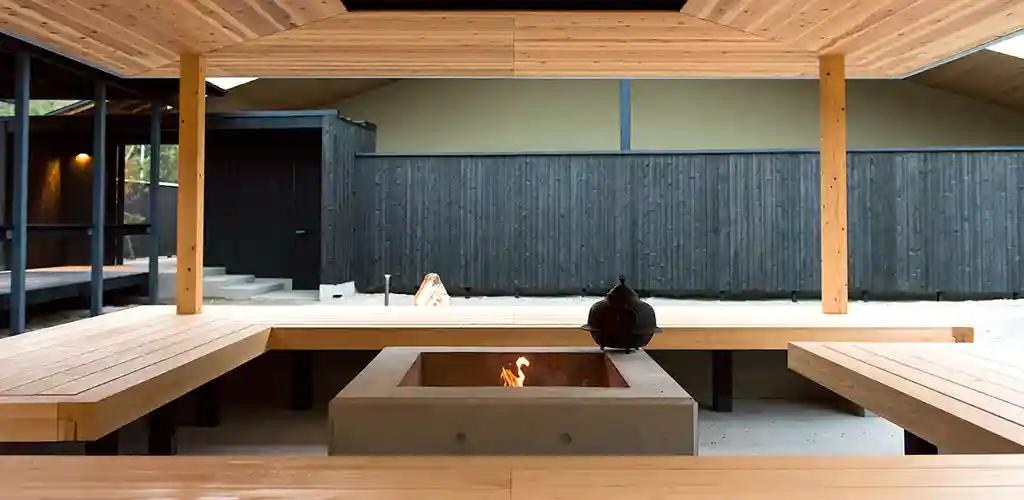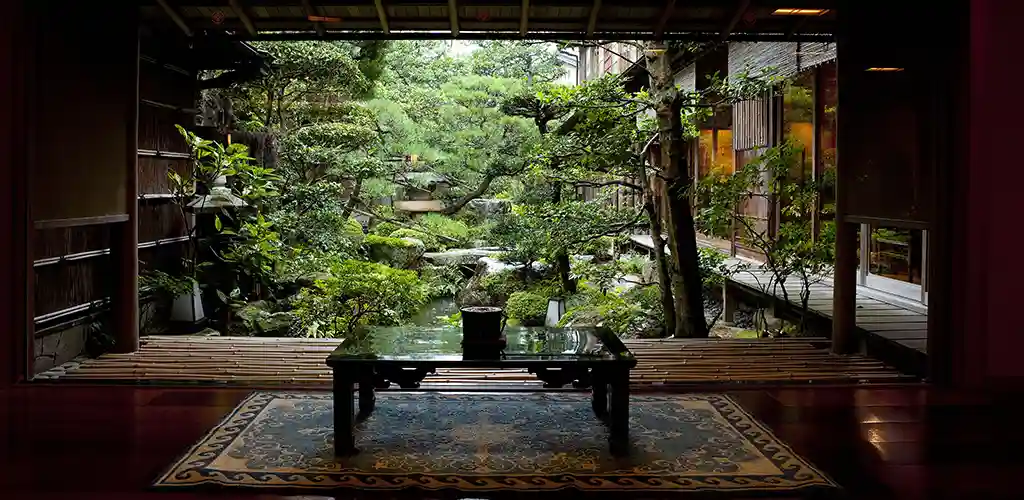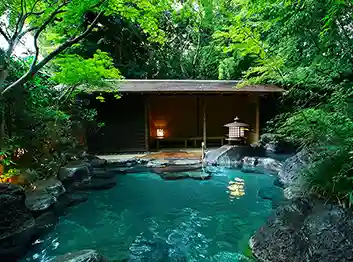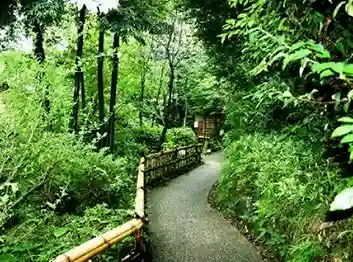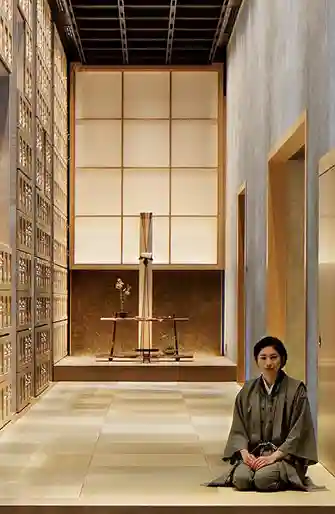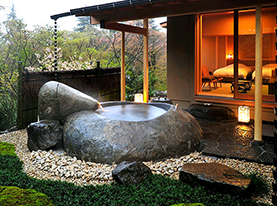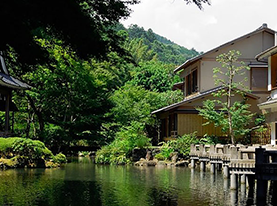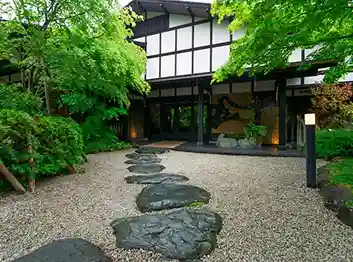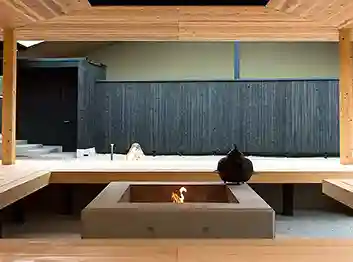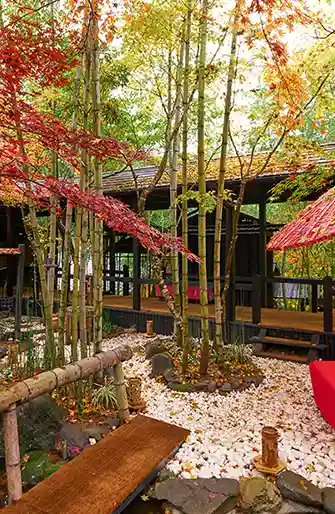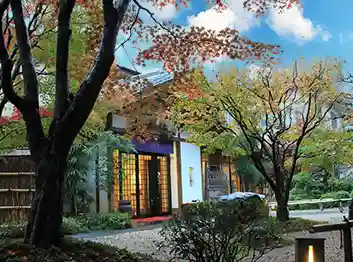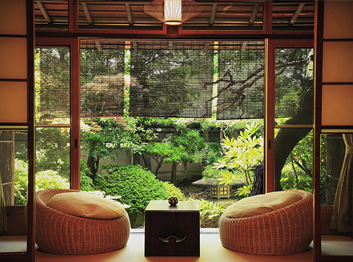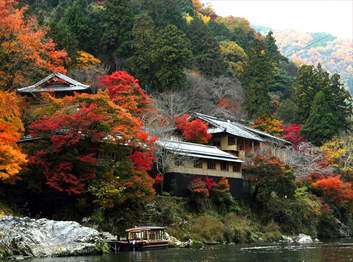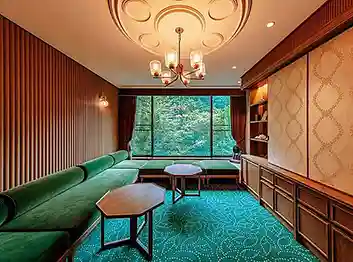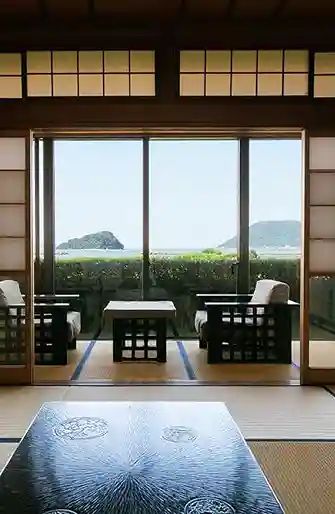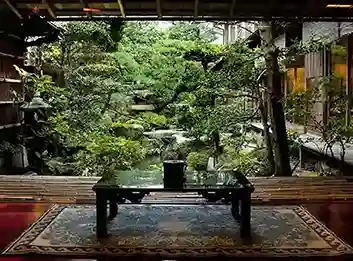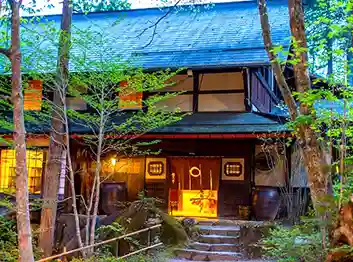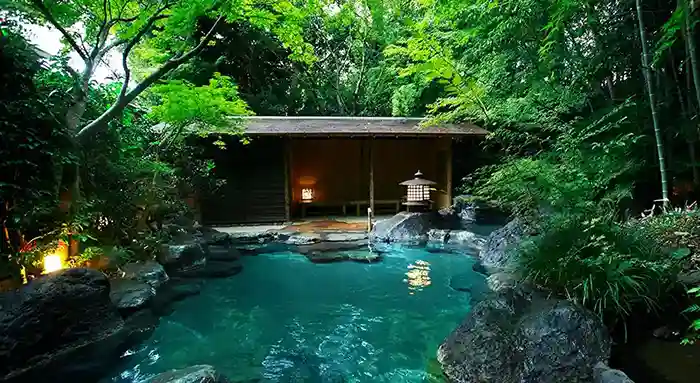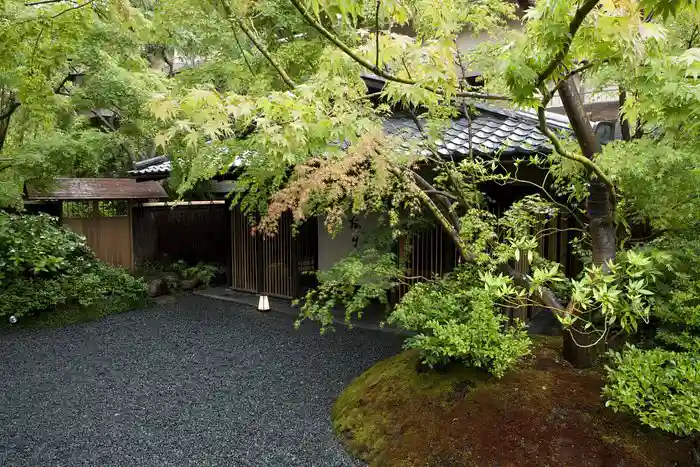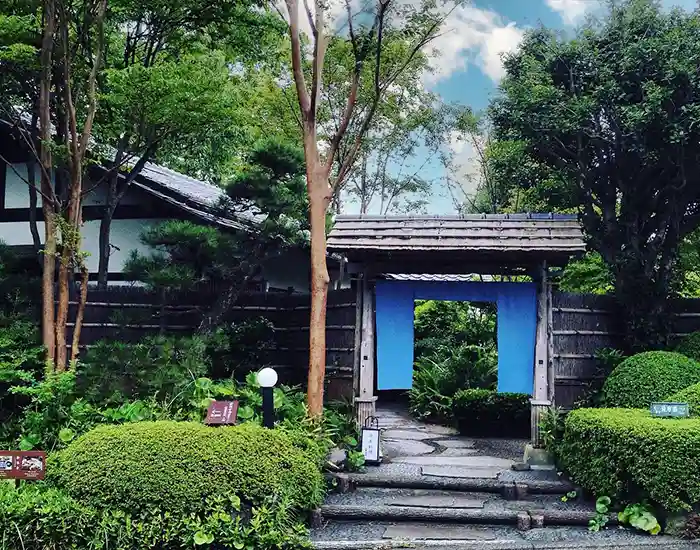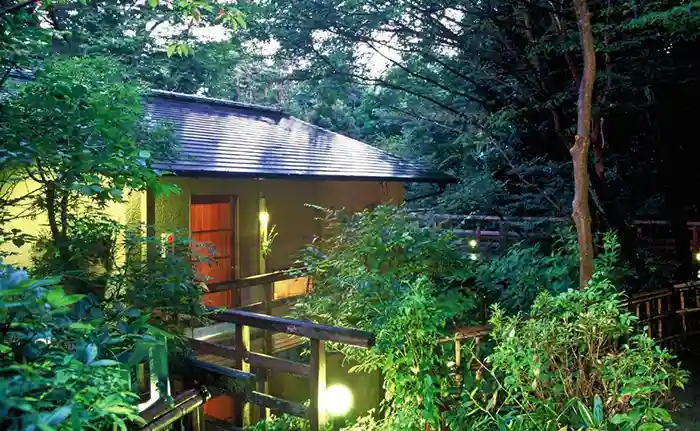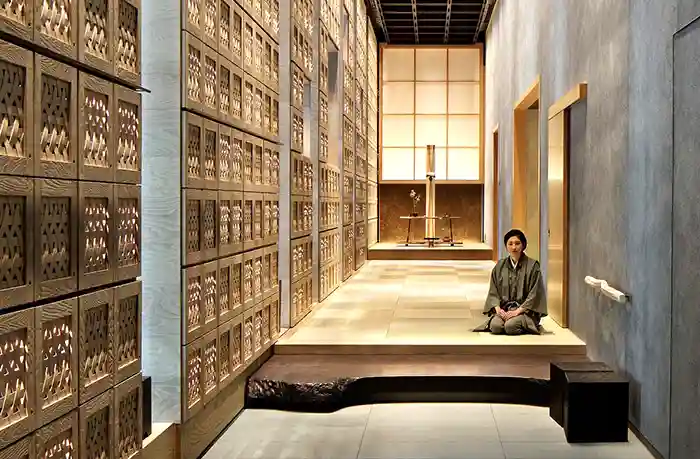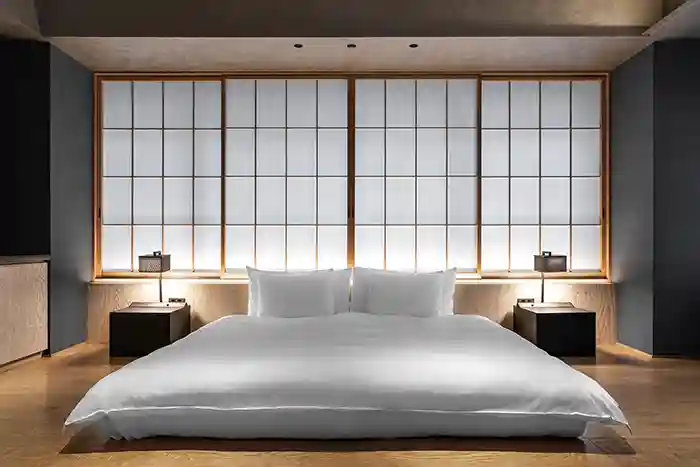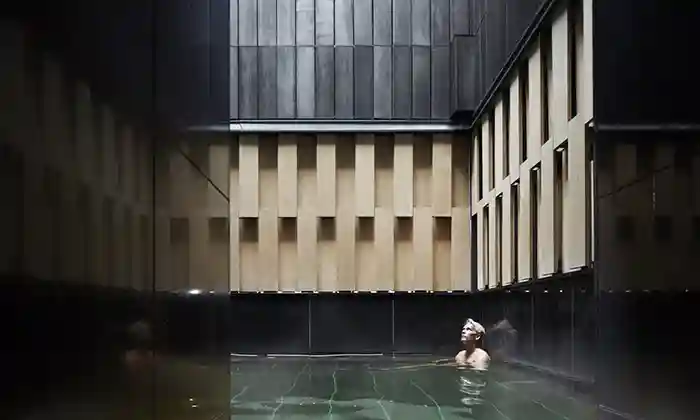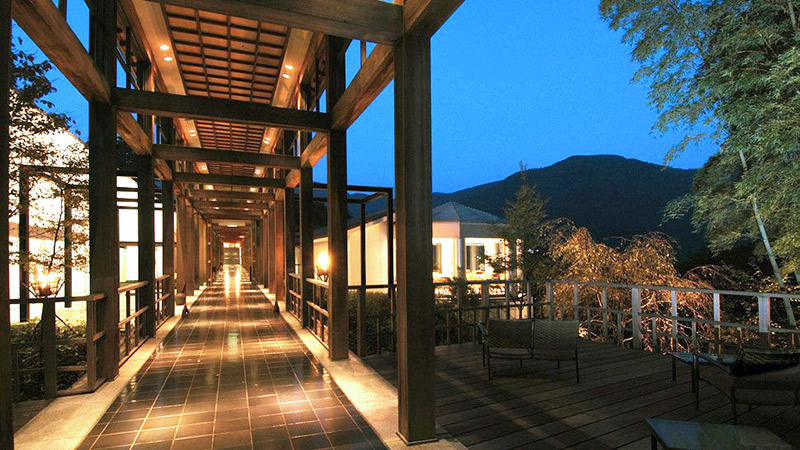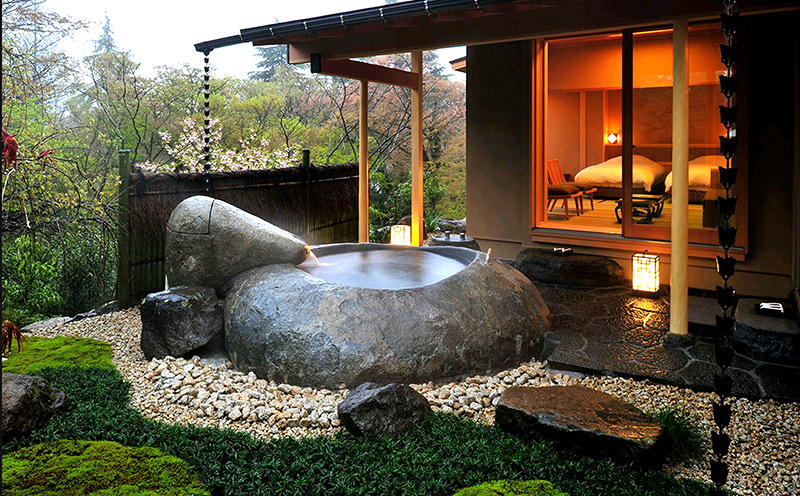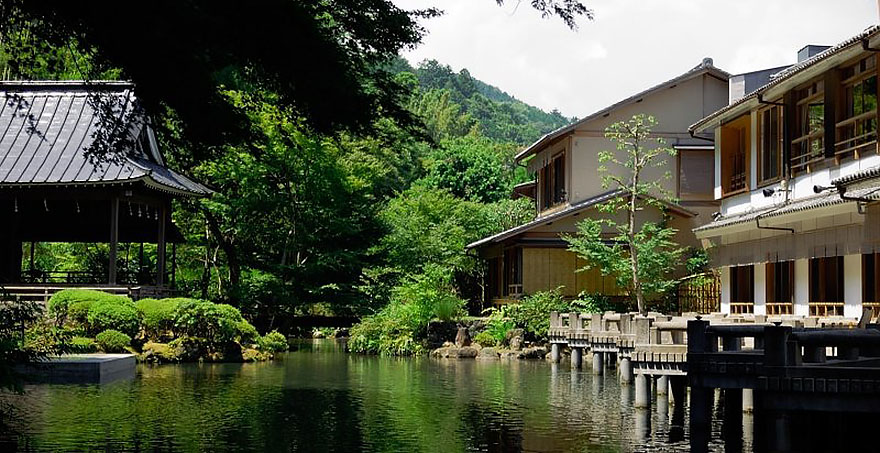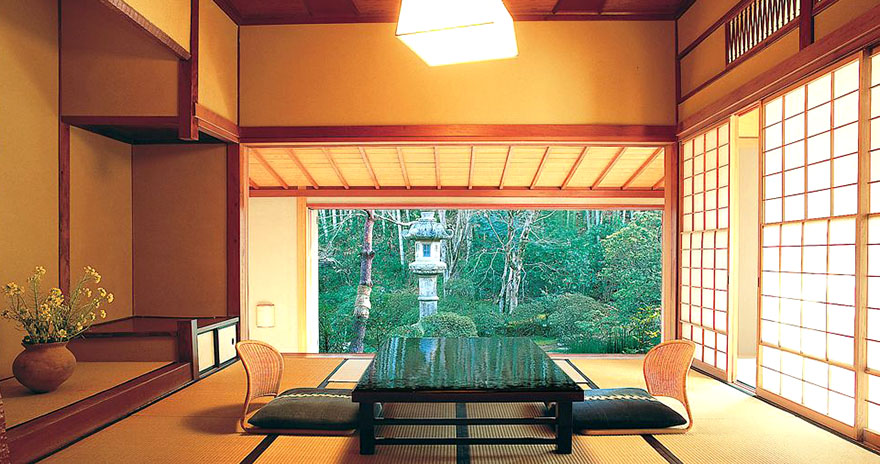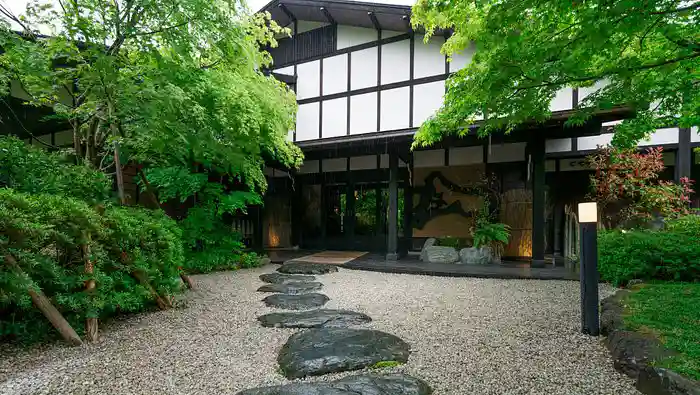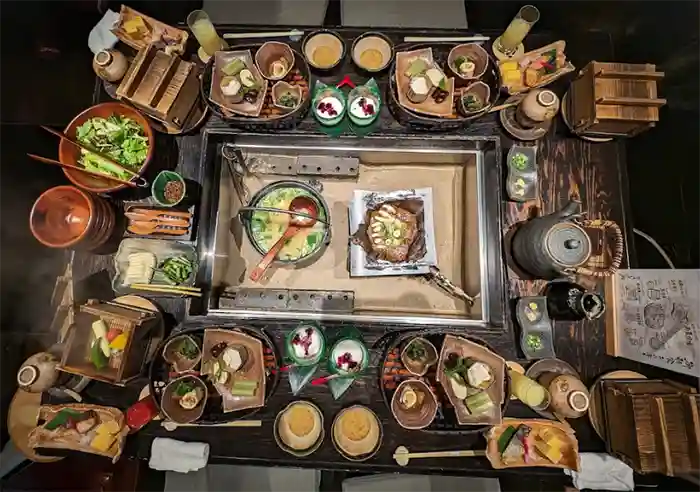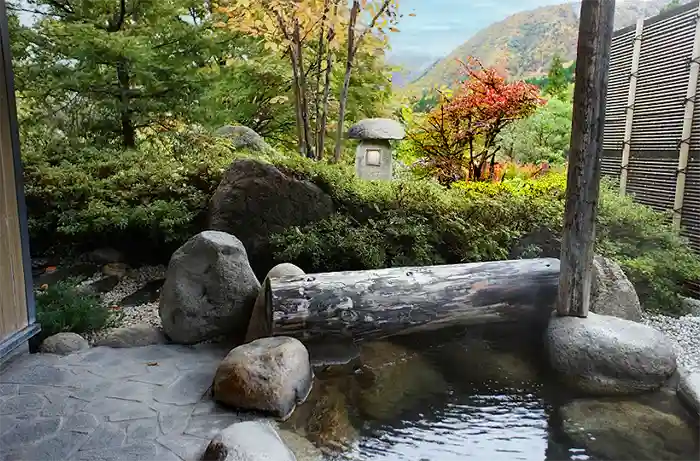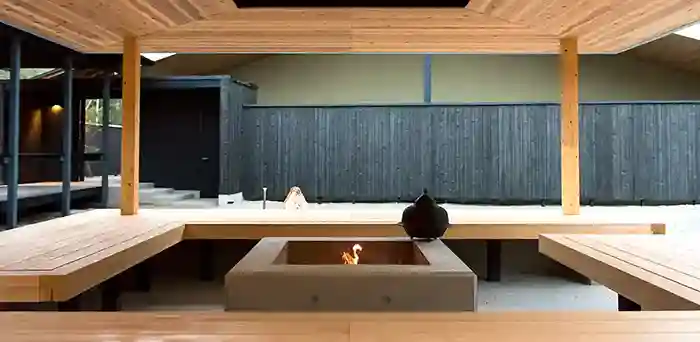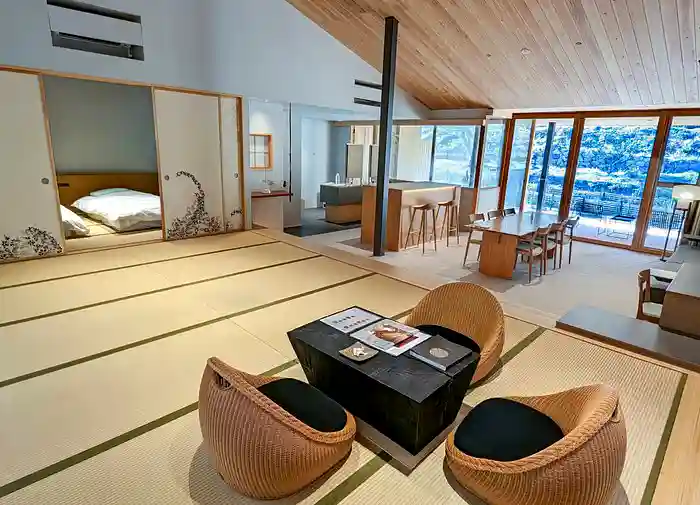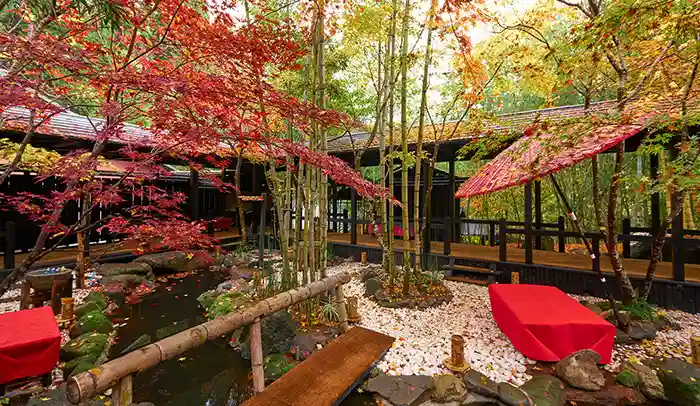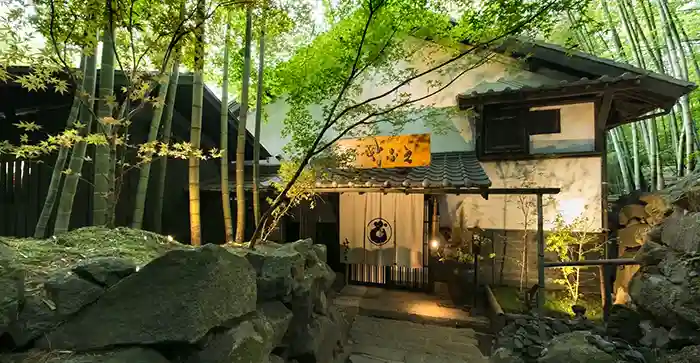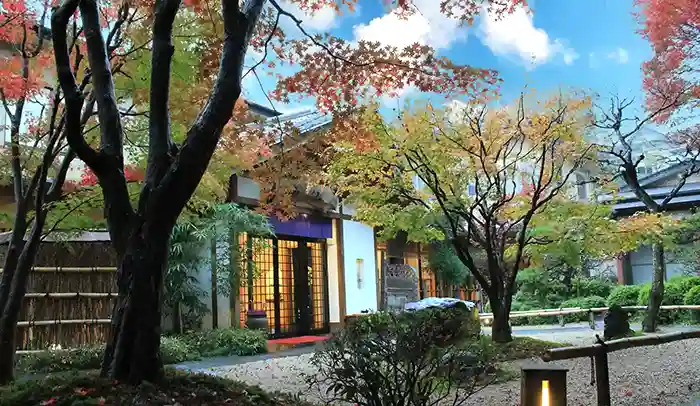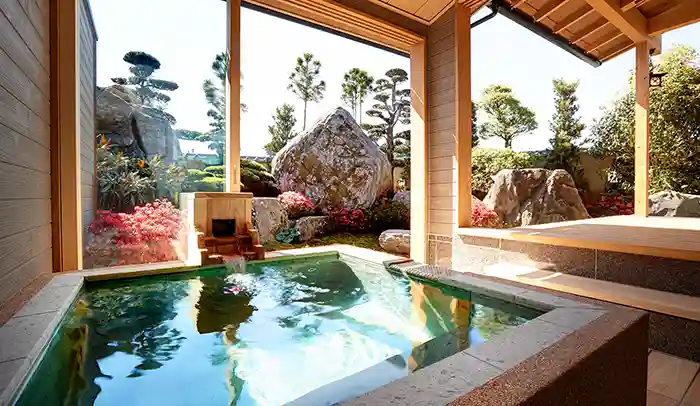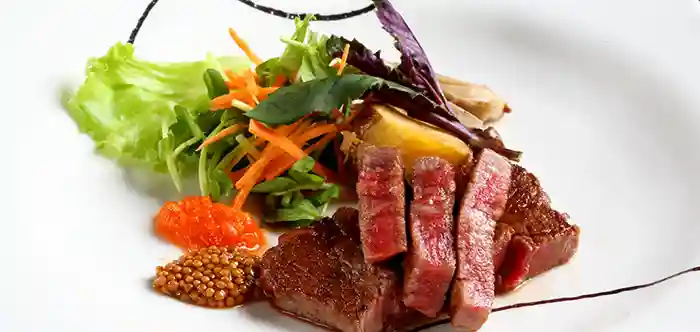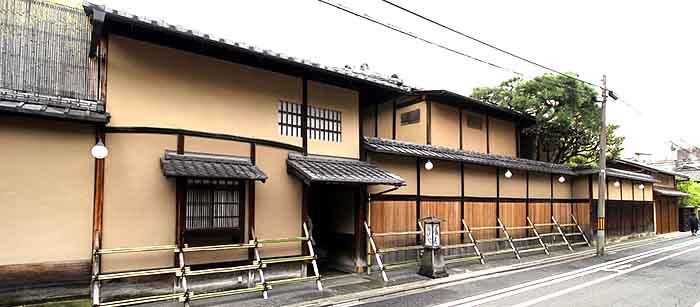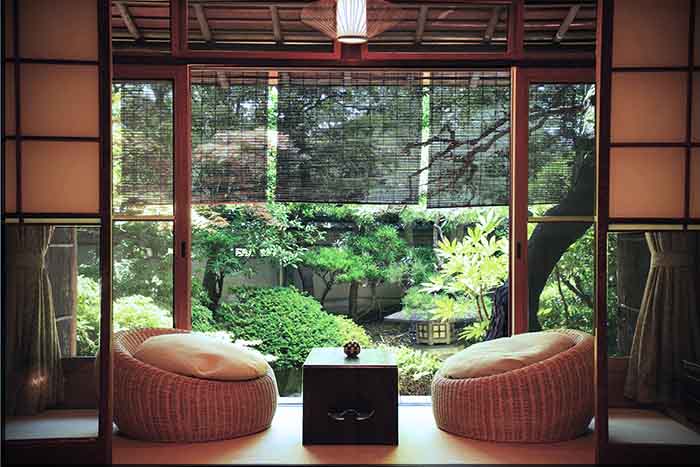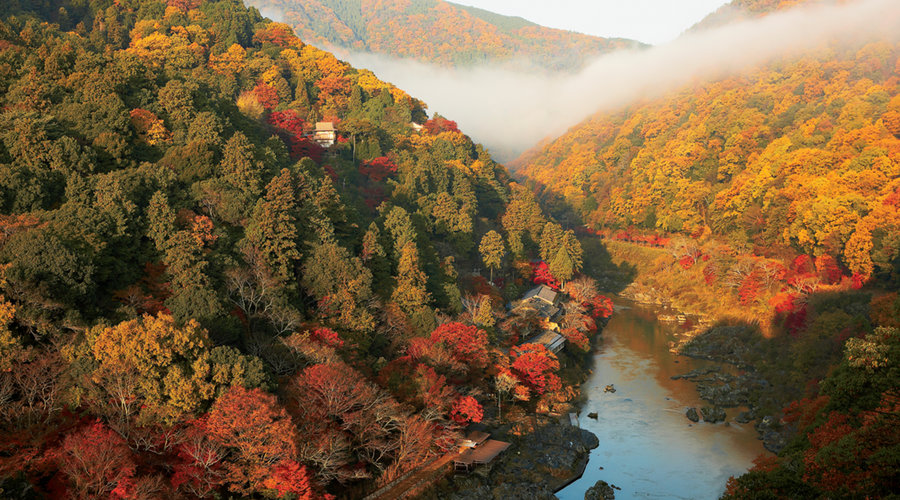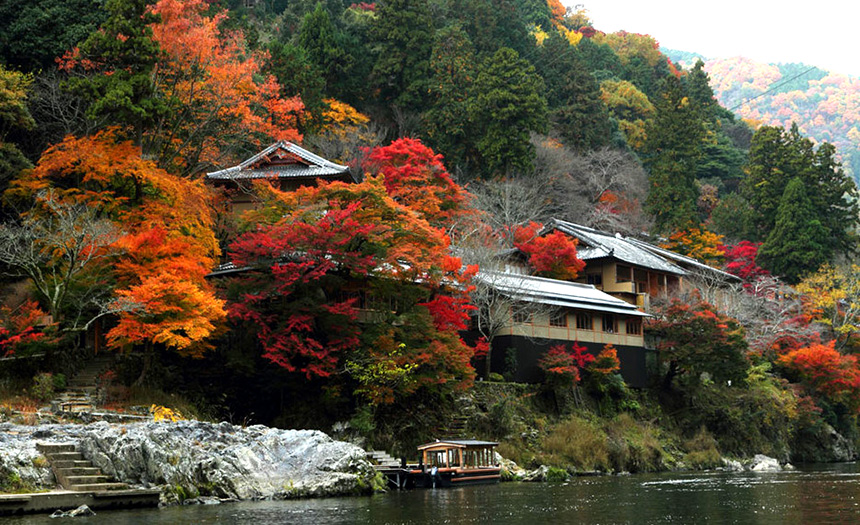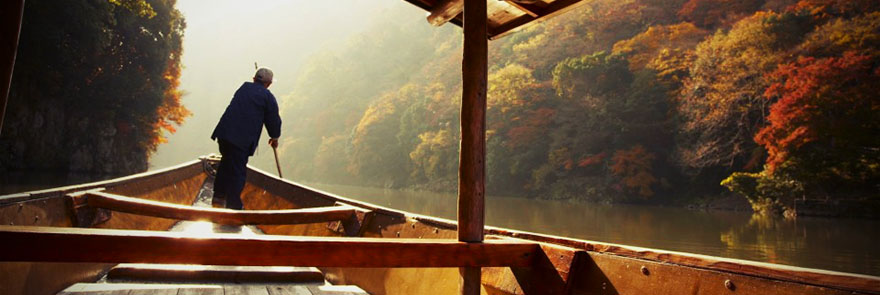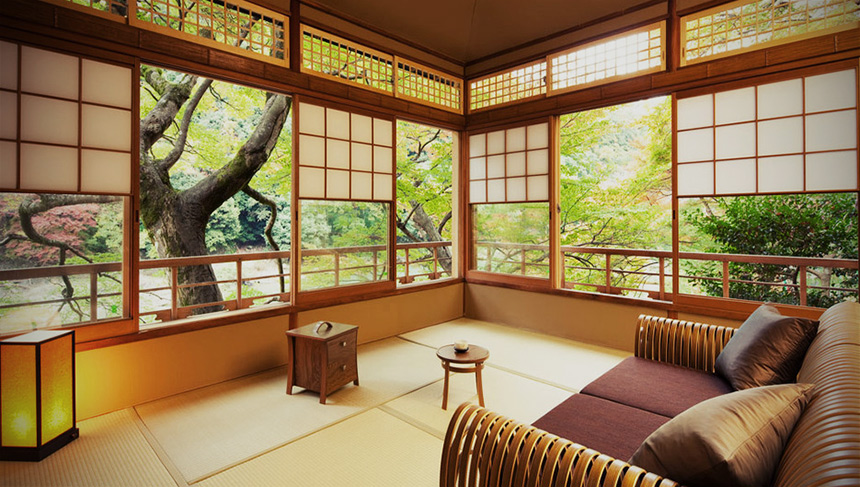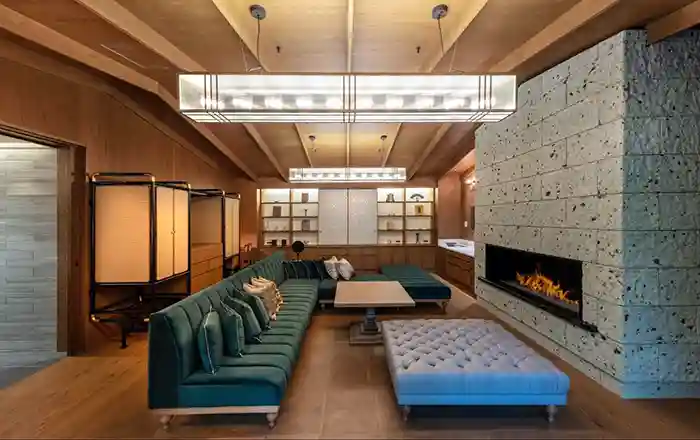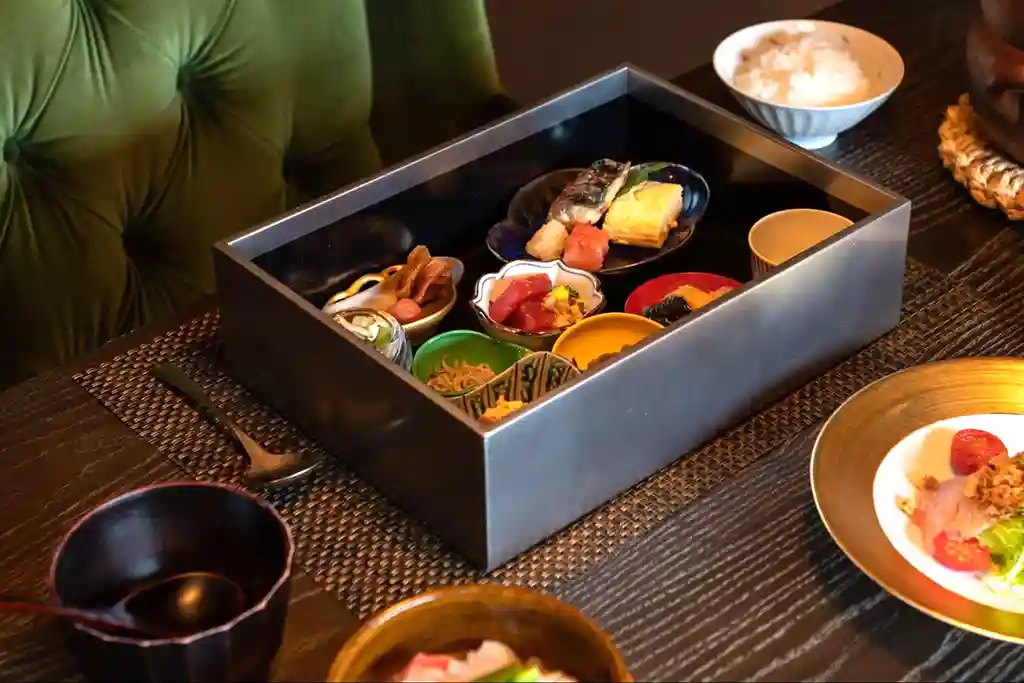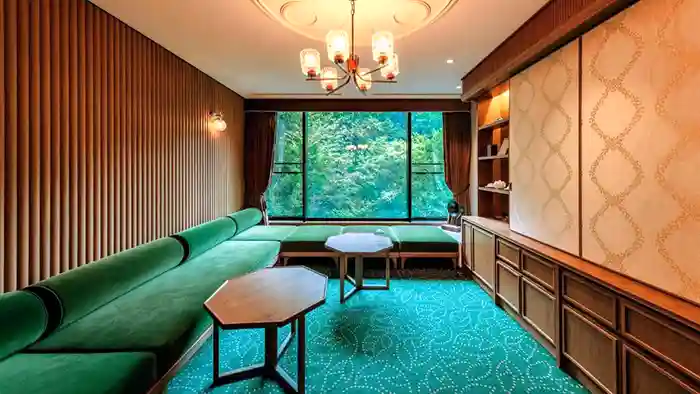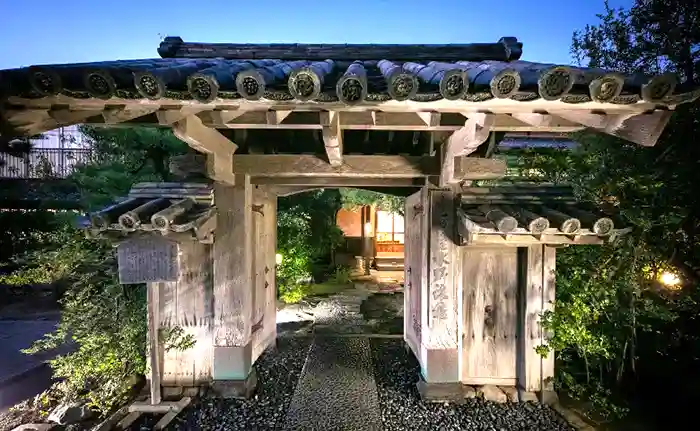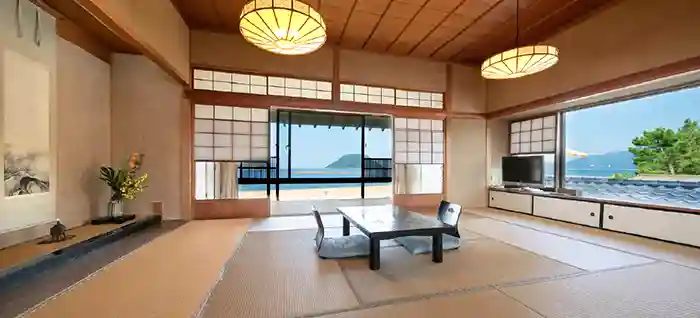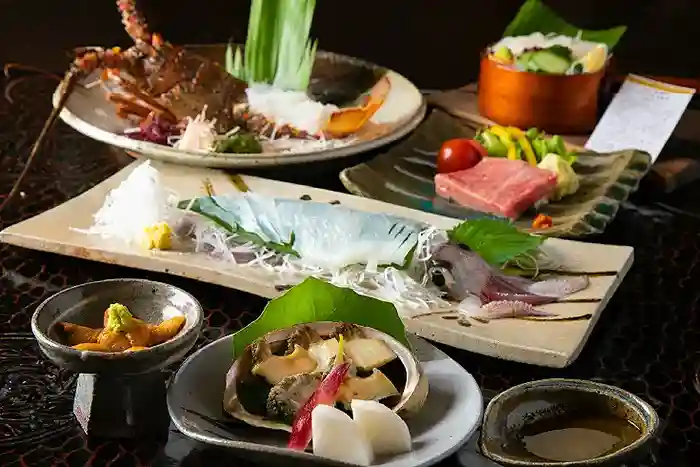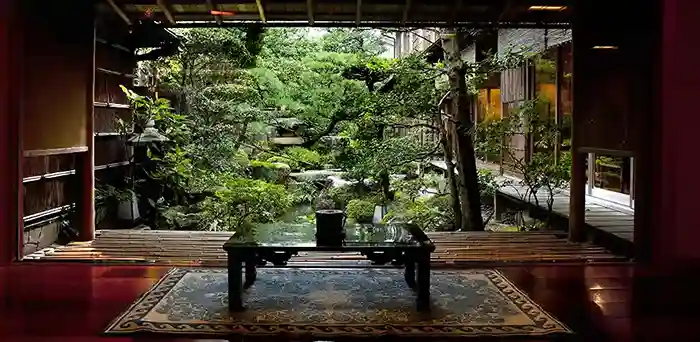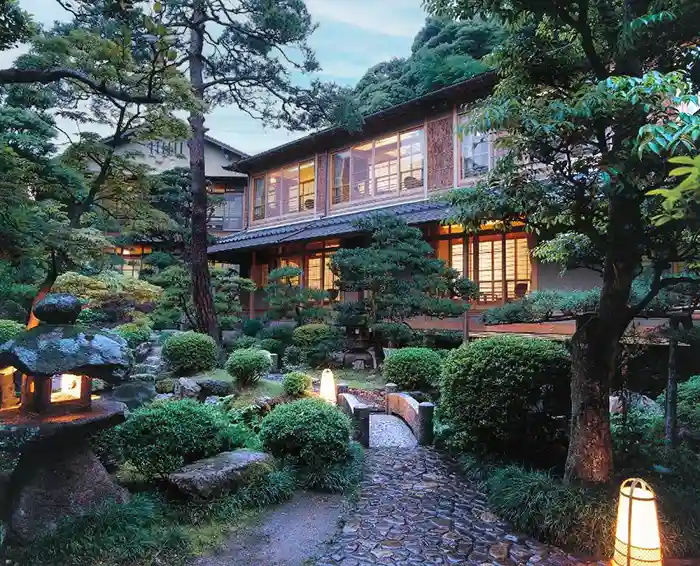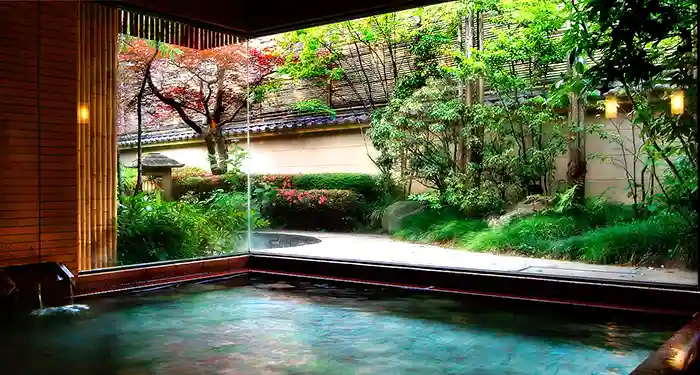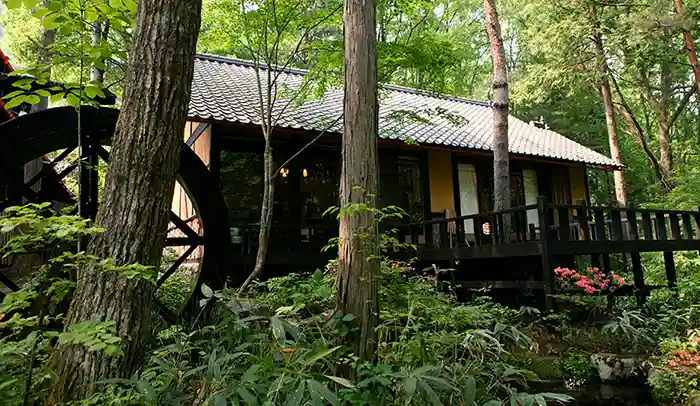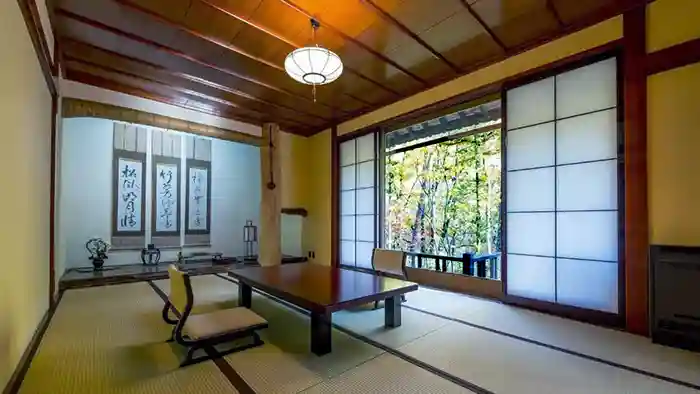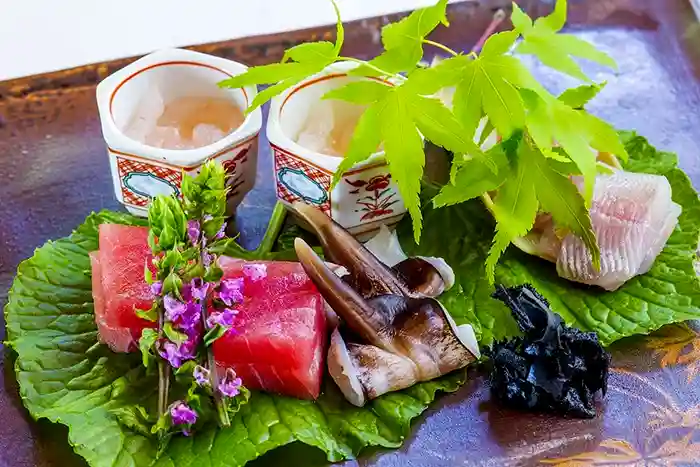Ryokan
Ryokan (“ree-oh-kahn”) are traditional Japanese inns are the ultimate way to experience the finest essence of Omotenashi (culture of hospitality), local cuisine, and onsen ritual (warm spring bathing). Ryokan feature tatami mats, futon bedding, local crafts and art, hand-crafted kaiseki dining, gardens, ponds, and warm hot-spring baths to soak in (onsen).Plan on staying in at least one or two during your trip, ideally in a remote natural place like the Japanese Alps.
There are a variety of ryokan, with over 60,000 of which are spread across the country (view a collection of finer ones below), some located in ancient wooden structures, often with a hot spring or onsen, while others may resemble a simple hotel, but with interiors also being traditional in design. Ryokan are popular with both Japanese and tourists alike and vary greatly in size, cost and style, from simple to luxurious, with some ryokan being small, family-run establishments with just a few rooms, while others are large, hotel-like properties with hundreds of rooms and large outdoor onsen.
RYOKAN FAQ
A ryokan stay usually includes elaborate kaiseki ryori dinner (Japanese haute cuisine) that showcase local and seasonal specialties. Authentic ryokans take great pride in showcasing the talents of local craftsmen and artisans, their creations adorning the walls and tables, from elegant hanging scrolls to intricate flower arrangements, ceramic pieces, and locally-produced tableware, objects that reflect the rich cultural heritage of the region. Their grounds often feature beautiful gardens and ponds, with views from each room.
Because of their emphasis on traditional style and atmosphere, ryokan may appear rigid and intimidating for the first-timer unfamiliar with specific procedures, customs, and etiquette. In reality they are a special and relaxing experience that everyone should take the opportunity to try without fearing offense. In order to help set your mind at ease, the following will help to explain what to expect.
Arrival at Ryokan
Great emphasis is put on a guest's arrival into the ryokan. Staff aim to ensure that guests feel welcomed, taken care of and relaxed from the moment they step onto the property. Because a guest's first impression of a ryokan occurs upon arrival into the foyer, or genkan, special efforts are made here.
The genkan is the entryway into a Japanese home, and is typically a stone or tile floor recessed one or two steps below the level of the main floor. This physical boundary marks a separation between outside and inside world, and serves as a space for outdoor shoes to be removed and stored, as they are not worn inside Japanese houses or ryokan. Please note these other aspects of a ryokan stay:
- Some ryokan offer Western beds in addition to floor-level tatami mats for comfort. Let us know in advance if you prefer Western-style beds.
- A customary tip should be offered to your attendant (discreetly, in an envelope) upon check-in.
- No shoes allowed inside. So remove your shoes before entering the ryokan (if you see slippers at entrance, it generally means you have to take your shoes off – slippers are always provided). Slippers should not be worn outside while different sandals or geta (wooden clogs) are for outside. Take off your slippers before walking on tatami mats (rice straw matted flooring).
- Each guest is provided with a yukata (traditional Japanese dressing gown). Yukatas are worn for lounging around, sleeping in, and even dining in. By now, you may have gotten the idea that ryokans are all about unwinding and relaxing.
- Ryokan typically include kaiseki-style dinners highlighting local cuisine. Dinner times are usually set and often served in room.
- The most pleasant ryokan are typically set in natural areas or small towns, not cities, with views of the surrounding landscape.
ONSEN
A highlights of any ryokan stay is the Onsen, or hot bath, experience. An onsen is often sourced from geothermically-heated springs, with different compositions of minerals such as hydrogen, sulfur, iron, radium and sodium. Some are extremely pungent in odor, some are white while others are more clear or blue or even golden in color, while some may have a more slimy organic texture than others. Many Onsen ryokans offer a variety of Onsen experiences, such as expansive, communal baths that can either be indoors or outdoor "open-air" baths with views of a river, mountains, garden or valley, and are usually segregated by sex and private, in-room baths (or both).
Do note three things: First, you must wash yourself before entering the bath, and it's considered bad form to let your towels or hair get into the tub. Secondly, bathing is generally an in the nude experience with swim wear almost never permitted, although most allow the use of a small modesty towel while walking to and from the bath. Finally, many ryokans (especially in rural areas) do not permit people with tattoos to use the communal bathing facilities (which stems from the association of tattoos with members of Japanese organized crime—yakuza). However, some onsen will not welcome you and simply issue you with skin-colored patches to stick on, covering up any potentially offending ink. This is slowly changing, with many places removing the no-tattoo restriction in communal baths. If you are adverse to soaking in the buff with strangers, or have tattoos, you may want to stay at a ryokan that has a private onsen in the room, or one that offers private "family" baths that can be rented by the hour.
Informal rules and tips to help enjoy your onsen experience:
- Wear your Yukata that is provided (dressing gown) to the onsen.
- Male and Female onsen will often be separate.
- Onsen is typically in the nude. Wash before entering the bath.
- All onsens will have a separate washing area with small stools and showers with shampoo/body wash provided.
- Nothing is allowed inside onsen baths including towels but you can leave your small towel to the side if you feel like it.
- Don’t put your head under the water usually.
- Towel dry your body before entering the changing room.
- Japanese typically don’t bathe after dinner, if your seeking solitude.
Let us to plan your perfect ryokan stay during a trip to Japan.
